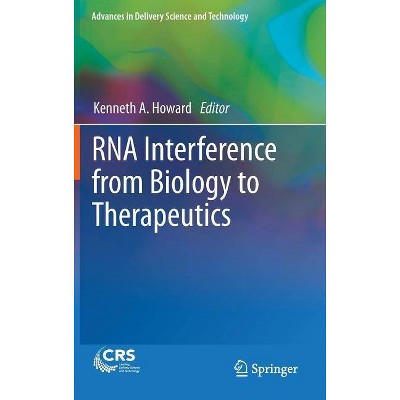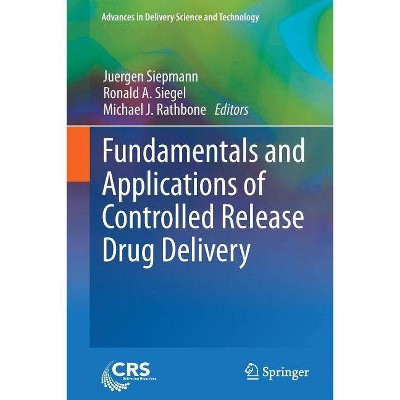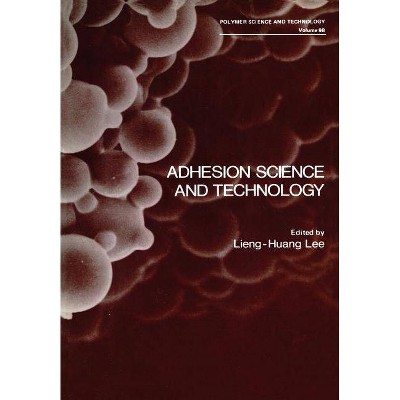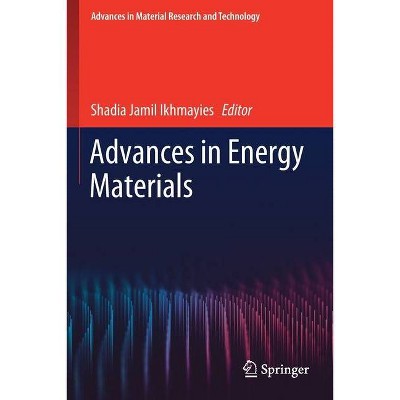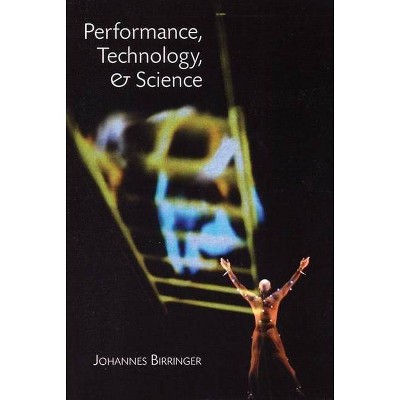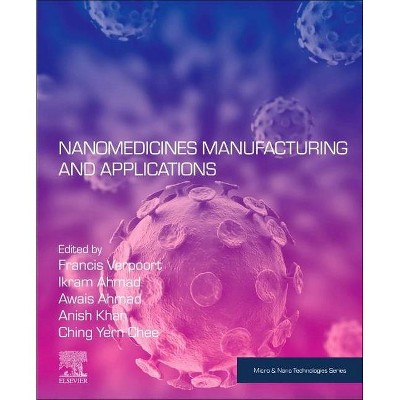Nanomedicine - (Advances in Delivery Science and Technology) by Kenneth A Howard & Thomas Vorup-Jensen & Dan Peer (Paperback)
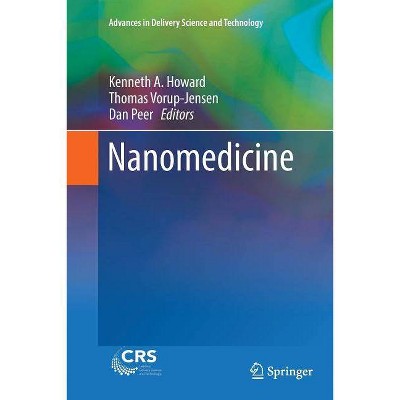
Similar Products
Products of same category from the store
AllProduct info
<p/><br></br><p><b> Book Synopsis </b></p></br></br>This title is a comprehensive text that addresses key aspects of nanomedicine such as properties occurring at the nanoscale that have unique medical effects, great molecular knowledge of the human body and disease processes, and apparent clinical translation as opposed to narrow insufficient texts that address only a few topics and attempt to "rebrand" established drug delivery. It will clearly define the field which is needed due to the immaturity and broad nature of the field. The book is aligned with both the USA and European roadmaps for nanomedicine and will address initiatives taken in Asia that ensures timely and relevant content. In-depth chapters ensure each section is adequately covered. The nanopharmaceutical section focuses on novel drug delivery systems relevant to nanomedicine and the book has an extensive section on immune recognition at the nanoscale which has implications for in vivo applications of nanomedicines. <p/><br></br><p><b> From the Back Cover </b></p></br></br><p><br></p>This book is set to meet medical challenges such as early and effective diagnosis, high throughput drug discovery and targeted delivery, as well as modalities for organ and tissue replacement to better enable personalized medicines. This unique title aims to capture the broad nature of the field whilst maintaining focus on the key elements that establishes it as a <i>bona fide</i> field, making it highly attractive to both researchers and students by providing an excellent guide and learning tool for those requiring an introduction to the subject. Contributions from prominent scientists in the field of immunology, molecular biology, and delivery and material science provide "snapshots" of this interdisciplinary field assembled in a single volume. <i>Nanomedicine</i> is a valuable text for those working or wanting an education into this high-impact field. <br><p/><br></br><p><b> Review Quotes </b></p></br></br><br>"This engrossing book is devoted to nanomedicine, one of the fastest-growing and revolutionary branches of healthcare. ... The book Nanomedicine provides a well-done and up-to-date review of hot topics in the field of nanomedicine and gives insight to this exciting interdisciplinary subject." (Alena Gabelova, Neoplasma, Vol. 64 (2), 2017)<p></p><br><p/><br></br><p><b> About the Author </b></p></br></br>Kenneth Alan Howard is an Associate Professor and Group Leader at the Department of Molecular Biology at the Interdisciplinary Nanoscience Center (iNANO), Aarhus University, Denmark. His research and teaching activities are focused on delivery science, nanomedicine and RNA interference. Kenneth Alan Howard received a PhD in Pharmaceutical Science from the University of Nottingham, UK, and has held postdoctoral positions at the CRC Institute for Cancer Studies, University of Birmingham, UK and the School of Pharmacy, University of London. Dr Howard is an active member of the Controlled Release Society serving on the Board of Scientific Advisors (chair), Nominations Committee and organizer of a CRS Educational workshops "RNA Interference Biology and Therapeutics" and "Albumin: the next generation therapeutic. Dan Peer is a translational scientist and Professor that leads an NIH-funded lab in the Faculty of Life Science and the Faculty of Engineering at Tel Aviv University (TAU). He is also the Director of the Focal Technology Area (FTA) on Nanomedicines for Personalized Theranostics, a National Nanotechnology Initiative and the Director of the Leona M. and Harry B. Helmsley Nanotechnology Research Fund. Prof. Peer's work was among the first to demonstrate systemic delivery of RNAi molecules using targeted nanocarriers to the immune system and he pioneered the use of RNA interference (RNAi) for in vivo validation of new drug targets within the immune system. He is an editor of several books in the field of nanomedicine, Editor of Molecular and Cellular Therapies (Springer); Editor of Biology and Medicine in Nanotechnology (IOP), an Associate Editor of the Journal of Controlled Release (Elsevier); Journal of Biomedical Nanotechnology, and of Biochemistry, and on the Editorial Boards of the Biomedical Microdevices (Springer), Cancer Letters (Elsevier), Nanomedicine: Nanotechnology, Biology and Medicine (Elsevier) and Bioconjugate Chemistry (ACS). Prof. Peer is currently the President of the Israeli Chapter of the Controlled Release Society, and a Member of the Israel Young Academy of Sciences and Humanities. <p/>Thomas Vorup-Jensen is head of the Biophysical Immunology Laboratory in Department of Biomedicine and a member of the iNANO at Aarhus University. He received a PhD in medicine from Aarhus University on topics involving the discovery, characterization and recombinant manufacture of molecules of the complement system. More recently, he was awarded from the same institution the Doctor of Medical Science degree following a dissertation on polyvalent interactions between molecules of the immune system and their targets, which includes certain nanomedicines. Following his work as Research Fellow in Pathology with Harvard Medical School and later employment with Aarhus University, his research has focused on understanding the nanoscience of protein ligand recognition. In addition to his academic efforts, Prof. Vorup-Jensen and his laboratory actively collaborate with industry partners to translate scientific findings into new treatments of clinical unmet needs, in particular focusing on autoimmune and infectious diseases. Prof. Vorup-Jensen is on the editorial boards of Frontiers in Pharmacology, Frontiers in Immunology, and Molecular and Cellular Therapies. Prof. Vorup-Jensen was recently elected member of The Danish Academy of Natural Sciences. <br>
Price History
Price Archive shows prices from various stores, lets you see history and find the cheapest. There is no actual sale on the website. For all support, inquiry and suggestion messages communication@pricearchive.us
